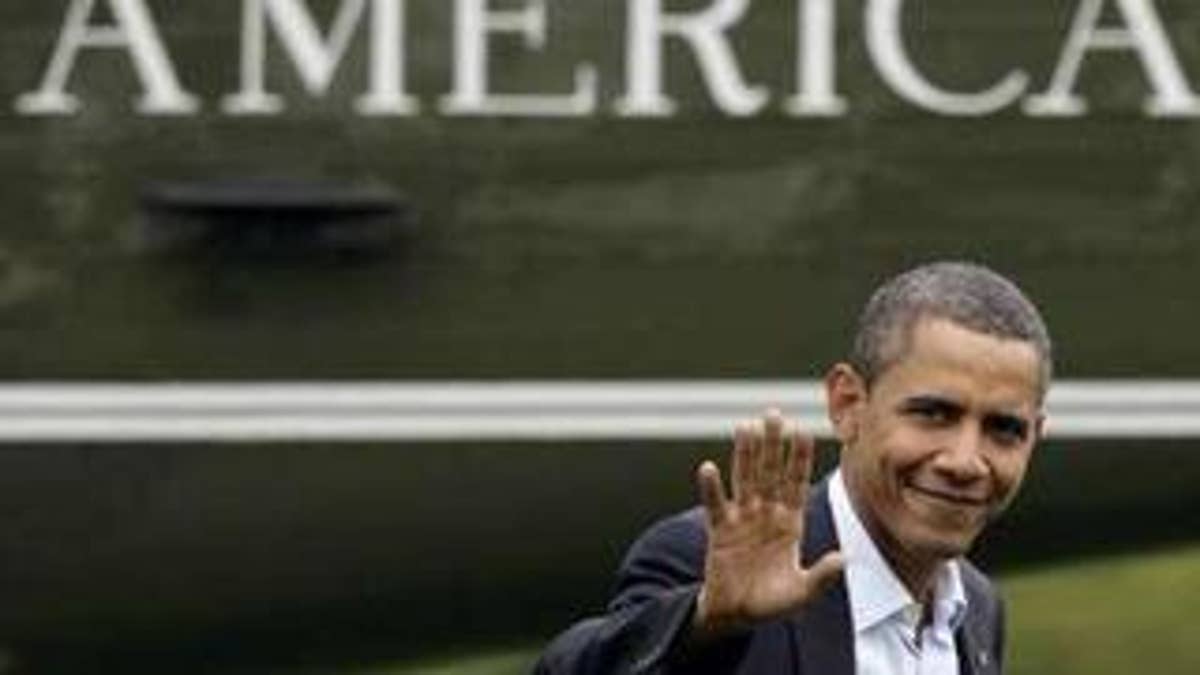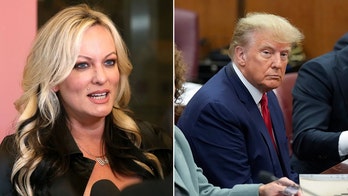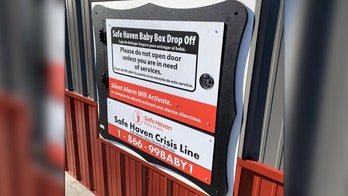
Republicans want President Obama to hit the "reset" button on health care reform when he addresses Congress Wednesday night. But if the president's fiery speech to the AFL-CIO Monday is any gauge, he's planning to crank up the volume instead.
In doing so, the president will be upping the ante in the debate, effectively hinging progress on his own magnetism and talent for persuasion -- rather than the merit of the policy proposals he's left up to Congress since taking office.
The question in the coming weeks will be whether that magnetism will be enough to overcome public discontent and break the partisan gridlock in Washington.
Tapping the pomp of a joint session of Congress could be Obama's best shot.
"This is the kind of setting where Bush took us to war," said Jeremy Mayer, public policy professor at George Mason University. "This is the power of the White House at its greatest podium and its greatest bully pulpit. And if Obama can't do it, then I'm not sure who can."
Conservatives maintain that Obama needs to take a completely new approach, and yet-another-speech on the importance of immediate reform will do him little good.
"If he comes back tomorrow night and tries to ram through a massive bill, I suspect in the end it'll fail just as it failed in 1994," former House Speaker Newt Gingrich told FOX News on Tuesday, referring to former President Bill Clinton's attempt to change the nation's health care model.
But the town hall bedlam that came to characterize so many lawmakers' August recess no doubt triggered a White House decision to have Obama try to seize the reins on the issue.
White House Press Secretary Robert Gibbs said Tuesday that Obama will answer "many of the big questions" about where he stands on reform, and will offer specifics that he has not before. He said the speech would be about a half-hour, not counting applause lines.
Gibbs dismissed criticism that Obama is merely bundling his past statements into one address, saying the American people will hear something new.
"I don't know that they've heard it in as big a forum, as clearly, directly from the president as they will tomorrow night," he said.
Analysts say that as long as the president is firm and specific in his address, he stands a chance of swaying moderates in the House and Senate, as well as independents in the public.
"If he does not, health care's going to die on the vine and so is Obama's political future," said author and FOX News contributor Marc Lamont Hill.
The president offered a taste of his tone during his Ohio address to the AFL-CIO Monday.
The address was tough and employed the kind of rousing call-and-response rhetoric he used effectively during the presidential campaign. He was by no means conciliatory.
"It's time to act," Obama said, slamming his critics for trying to "scare the heck" out of people.
"I've got a question for all those folks: What are you going to do?" Obama asked. "What's your solution? And you know what? They don't have one. Their answer is to do nothing."
Obama said he'll have "a lot more to say" Wednesday night.
"I think we're going to see an Obama that we've seldom seen before. I think he's going to be very aggressive," Mayer said, adding that Obama will probably urge Americans to contact their members of Congress in a bid to apply pressure to those lawmakers in the House and Senate who could be swayed.
Democratic strategist Peter Fenn said Obama will not hesitate to shame his critics.
"There's a large segment of the Republican Party that believes this is his Waterloo," Fenn said. "I think he's going to take them straight on. He's not going to sway any votes there. They're gone."
But Republicans are taking the president on as well, showing no signs of ceding ground.
The party has picked a surgeon, Rep. Charles Boustany, R-La., to deliver the GOP response Wednesday -- a move that could lend added credibility to the Republican stance.
The success of Obama's effort, during the speech and afterward, could boil down to how he handles what is arguably the most contentious issue in the debate, the creation of a government-run insurance plan.
Liberal Democrats in the House are demanding that a full-scale government program remain in the final package. But Republicans in both chambers are staunchly against it, as are some moderate Democrats. Rep. Mike Ross, D-Ark., one of the key moderate House Democrats known as "Blue Dogs" said Tuesday he would not support the so-called public option, and House Majority Leader Steny Hoyer suggested a House bill that includes a government-run program may not survive further negotiations.
One problem for Obama is that there are still many variables, and so he is unlikely to rally support for a single proposal.
Four bills have passed out of committee, and none of them has passed out of the House or Senate. The Senate Finance Committee is still trying to reach a bipartisan deal in the coming days, the contents of which could change the course of the debate.
The president is tasked with helping find a solution that can retain enough Democratic support on the House side while attracting moderates of both parties on the Senate side.
One potential solution is a "trigger," or a mechanism that would keep a public option on reserve in case private insurance companies don't meet certain benchmarks. It's unclear whether Obama will comment on that Wednesday night.
On Sunday, Gibbs said not to expect any veto threats Wednesday, but that Obama would "draw some lines in the sand." On Tuesday, though, Gibbs was less clear about whether the president would issue a veto threat.
FOXNews.com's Judson Berger contributed to this report.




